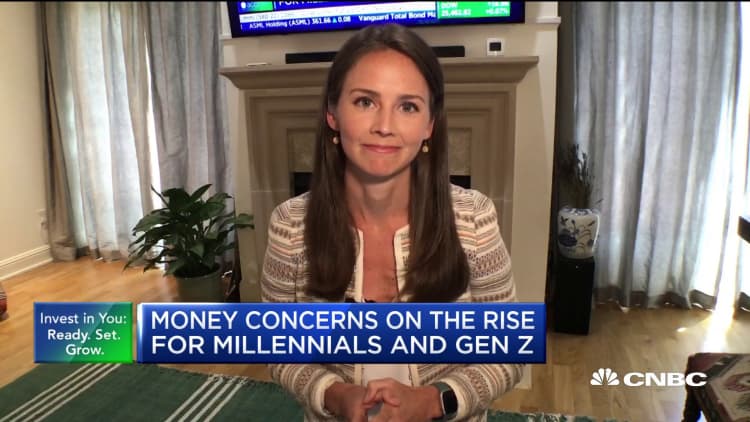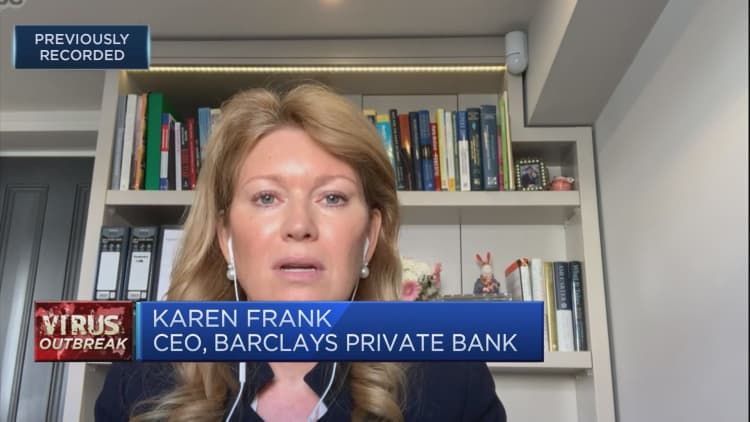In the nine years we've conducted the Deloitte Global Millennial Survey, the idealism of the workforce's youngest generations has been a constant. Their ascendance into adulthood has been marked by technological transformation, financial upheaval, new global threats, and political, social, and civil rights movements.
Through it all, they've had big demands and high expectations of businesses, governments, and their employers. Over the years, though, we've watched their optimism wane as careers launched during a global recession failed to blossom as many hoped. Living with societal unrest and accelerated transformation in the workplace has further fueled their uneasiness.
One byproduct of these forces is anxiety, and there's plenty of it. Before the pandemic, almost half of Generation Z and 44% of millennials told us they're stressed all or most of the time. But they've also developed resilience and common-sense approach to life that echoes the generation raised during the Great Depression; and a motivation to create change, much like those who shaped the 1960s.

We solicited thousands of millennials' and Gen Zs' opinions twice for this year's Millennial Survey report — once at the end of 2019 in 43 countries, and again four months later in 13 countries. We learned that their toughness has served them well during the Covid-19 pandemic. In 11 of the countries we surveyed in April and May, respondents actually expressed lower levels of stress than they'd reported in the first survey.
The follow-up research also revealed greater optimism about the environment, a strong commitment to financial responsibility and saving, and an even greater craving to drive positive change in their communities and reward businesses that do the same.
The pandemic could have crushed their spirits. Instead, they've taken it in stride and embraced the opportunity to come out better on the other side.
Environmental enthusiasm
If anyone doubted the importance of protecting the Earth to these generations, the fact it was ranked as a top concern both before and during a global health and economic crisis demonstrates where their priorities lie. In the first survey, both millennials and Gen Z expressed serious concern about the planet's health. But as the Covid-19 pandemic initially slowed global activity, and people began seeing clear skies and waters where they seldom existed, a renewed optimism emerged.
In the initial research, more than half of respondents in the 13 countries that were surveyed again later said they believed society had reached a point of no return and that it's too late to repair the damage caused by climate change. At the pandemic's peak, though, the 17-point gap that separated millennials who believed it was too late (54%) from those who didn't (37%) shrank to just two points (46% to 44%). Among Gen Z, a smaller 12-point separation also dwindled to only a 2-point gap between those who remained pessimistic versus those who believe it's not too late to save the planet (46% versus 44%).

About four of every five respondents in the second survey said that given the environmental impacts resulting from responses to the pandemic, both businesses and governments should make even greater efforts to protect the environment. But nearly two-thirds of respondents fear that, in the long term, environmental and climate change initiatives will be less of a priority for business and government because of the pandemic's economic impact.
More from Invest in You:
SEC Chairman Jay Clayton says Americans need financial literacy now more than ever
Five ways for Gen Z members to learn or earn in a pandemic summer of busted plans
Gen Z borrowers are unaware of Covid-19 student loan relief programs, study finds
Financial pragmatism
The ability to budget and save will be valuable for a millennial group that possesses far less wealth than previous generations had at the same age—and is facing yet another recession, this time as workers enter what should be their peak earning years. In this year's second survey, 61% of millennials believed their financial situations would worsen or stagnate in the next year, a jump from 54% in the same 13 countries five months prior. Financial worries also were cited as a top cause of stress.
At the same time, in spite of job impacts that have sidelined or shortchanged many, there was no deterioration in the number of respondents who said they could cope with an unexpected major expense or who had savings equal to at least three months of income. And far fewer people said they had missed a payment in the past six months, while more said they could pay their bills in full each month.
These findings support evidence from the pre-pandemic survey that millennials generally manage money responsibly. In that research, millennials said they were saving or investing almost 40% of their disposable incomes. Fewer than a quarter had personal loans, and only 20% had mortgages. That judiciousness has benefited them during the Covid-19 crisis.
Societal activism
For many millennials and Gen Z, the pandemic has reinforced their desire to help drive positive change in their communities. Many members of these generations already considered themselves purpose-driven, yet around three-quarters of pulse survey respondents said that the pandemic has highlighted new issues that have made them even more sympathetic toward the needs of others. The same proportion of respondents said the pandemic has inspired them to take positive actions to improve their own lives and, once restrictions are lifted, their communities.
Millennials and Gen Z continue to change their personal routines with an eye toward improving the planet. Prior to the pandemic, more than half (58%) of millennials said they had increased their use of public transportation, half had reduced "fast fashion" purchases, and two-thirds were cutting back more on single-use plastic and recycling. Approximately a fifth of millennials and Gen Z claimed to be vegetarians or vegans, and 40% of millennials reported reducing their consumption of meat and fish. Longer-term, 62% of millennials and 58% of Gen Z said they either have considered or plan to consider the environment when deciding how many children to have.
They'd like to see that same kind of commitment from business, and they have no reservations about starting or stopping relationships with businesses based on factors that reach beyond personal experience or product satisfaction. About 60% of all respondents said they plan to buy more products and services from large businesses that have taken care of their work forces and positively affected society during the pandemic. And nearly 80% of millennials and more than 70% of Gen Z surveyed said that once the pandemic eases, they'll make an extra effort to buy products and services from smaller, local businesses.
The message for business
The positive reviews respondents gave business for its pandemic response — 62% said companies' actions demonstrated a genuine commitment to society — didn't translate into improved opinions of business overall. In the first survey, 51% of millennials said business is a force for good, down from 76% just three years ago. Four months later, only 41% of millennials and 43% of Gen Z surveyed agreed that business in general around the world was having a positive impact on society.
Still, well-received actions in the short term may be a first step in reversing broader opinions about business. Reputation building takes time. It also requires a recognition of and response to the idealism, pragmatism, and activism of millennials and Gen Z as they continue to push for a world in which businesses and governments mirror their same commitment to society, putting people ahead of profits and prioritizing environmental sustainability, diversity and inclusion, and social equality.
The viewpoints of these resilient generations will be critical to creating a new and better normal. They see the brighter society that's possible once the pandemic passes and want businesses to help them achieve it. It's an opportunity business leaders cannot let pass.
SIGN UP: Money 101 is an 8-week learning course to financial freedom, delivered weekly to your inbox.
CHECK OUT: If you invested $500 in 2010 according to Warren Buffett's advice, here's how much you'd have now via Grow with Acorns+CNBC.
Disclosure: NBCUniversal and Comcast Ventures are investors in Acorns.





